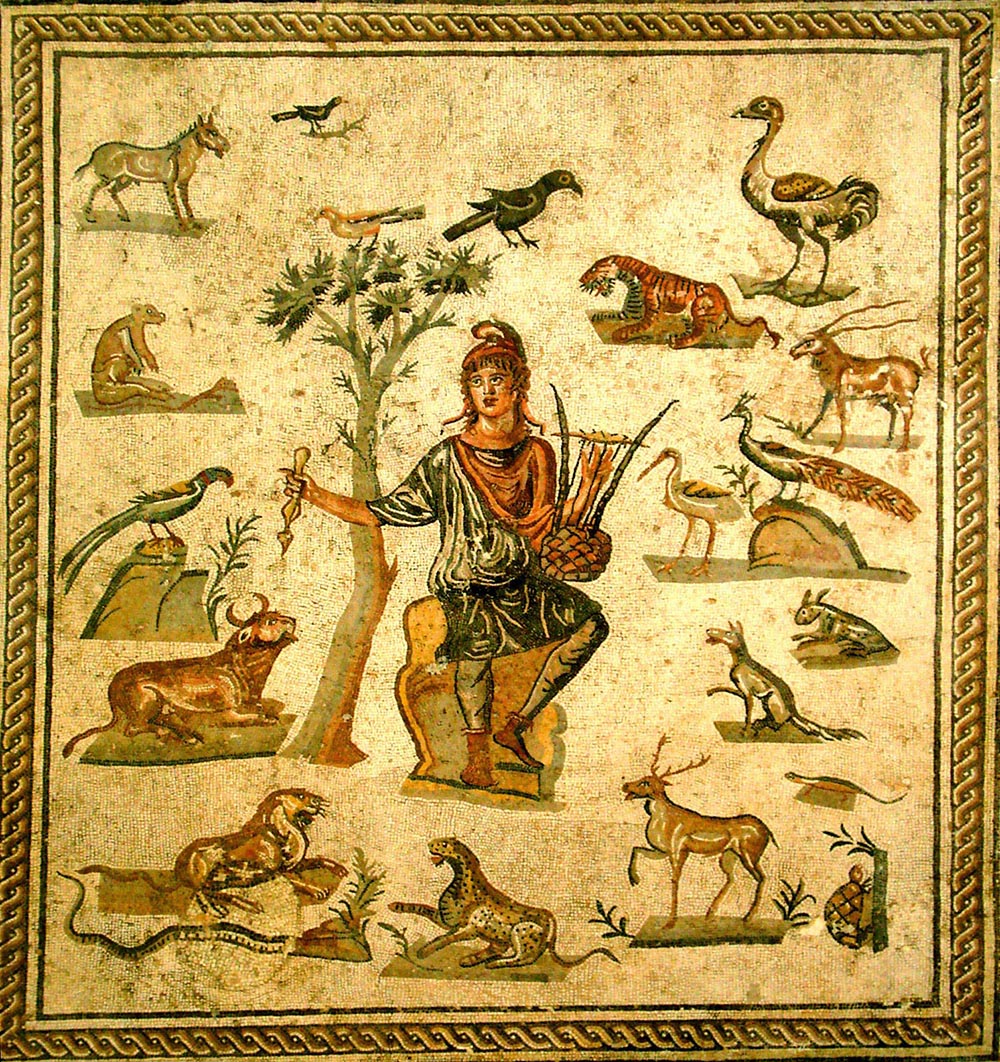حضرت داوود (ع)
King Davidحضرت داوود (ع)
King DavidThe Traditional Story of King David
The Traditional Story of King David
In the Hebrew scriptures, 1 Samuel 16 introduces readers to a young man who will capture not only the heart of the nation of Israel, but also the heart of God. The Old Testament Prophet Samuel (c. 1200–1050 BCE) is sent to Jesse of Bethlehem (a common farmer and shepherd) to anoint one of his sons as the new king - while Israel's first king, Saul (c. 1080–1010 BCE), is still living but failing in his duties to follow Samuel's instructions and rebelling against the authority/commandments of God. After Jesse parades nearly all his sons by Samuel, each one rejected as king, he finally brings his youngest - David, who “was glowing with health and had a new appearance and handsome features” (1 Samuel 16:12).
Although David does not look like a king should look, he has the heart of a lion - a courageous spirit - and even more, a deep, unending love for God. Samuel, who has been so depressed over King Saul, finds hope and blessing in the young shepherd from Bethlehem in Judea. After David was anointed, 1 Samuel 16:13 states, “and from that day on the Spirit of the Lord came powerfully upon David





















